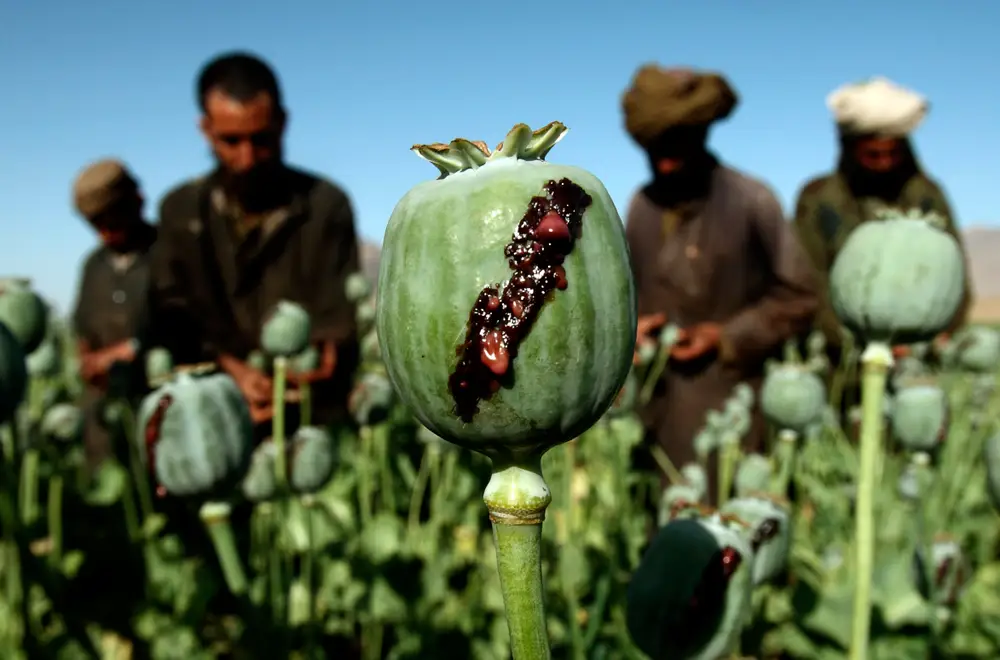On Thursday, the Afghan Ministry of Foreign Affairs said that Opium production in Afghanistan has almost completely vanished.
The Ministry’s spokesman, Hafiz Zia, claims that there is no longer any poppy farming as of 2020. In 2020, 56.2% of the land in Helmand Province was under cultivation; this percentage fell to 0.4% in 2023.
Ahmad tweeted, “In actuality, it is much less.”
Read This Also: The Tragic Incident of Jadoon: A Tale of Injustice and Oppression
In April of last year, Hibatullah Akhundzada, the Taliban’s top leader, issued a proclamation forbidding the cultivation of poppies in the entirety of Afghanistan.
Read This Also: Iranian and Turkish border guards abduct and abuse Afghan refugees
Thomas West, the US’s special representative for Afghanistan, said on Wednesday that claims that the Taliban government is halting poppy cultivation are “credible and significant.”
Everyone in the area, as well as those outside of it, shared their wish for a drug-free Afghanistan.
Read This Also: Unleashing Opportunities for B2B E-commerce with Amazon Business
Haibatullah Akhundzada, the supreme leader of the Taliban, firmly forbade the growing of the poppy, which may be used to make opium, the main component of heroin, in April 2022, as reported by a BBC article published earlier this week. Anyone who disobeyed the prohibition would face punishment and have their pitch destroyed under Sharia law.
A Taliban representative, who spoke to the BBC, revealed that they implemented the restriction even though it goes against their Islamic beliefs and is necessary to stop the spread of opium made from poppy seed capsules.
Related:

Afghanistan used to produce more than 80% of the world’s opium, making it the country with the highest production. Furthermore, opium from Afghanistan constitutes 95% of the heroin sold in Europe.
The BBC has now been to Afghanistan to explore the effects of direct action on the production of opium poppies using satellite technology. According to the BBC, the Taliban commanders appear to have had the most success destroying farming.
In the major opium-producing regions, we found a substantial reduction in poppy growth. One expert estimated that yearly cultivation may be 80% lower than the previous year. Many farmers are struggling financially as wheat plantings have displaced the less profitable poppy crops.
The BBC travelled to Helmand, Kandahar, and Nangarhar among other provinces. Satellite image analyses were also conducted.
“Cultivation is probably going to be less than 20% of what it was in 2022. According to David Mansfield, a top authority on Afghanistan’s drug trade who works with Alcis, a UK company that specialises in satellite data, the size of the decline will be unparalleled.
Alcis’ data shows a greater than 99% drop in poppy cultivation in Helmand. According to David Mansfield, the cultivation of poppies in the Helmand province has decreased to less than 1,000 hectares. Which is a significant drop from the previous year’s 129,000 hectares.

